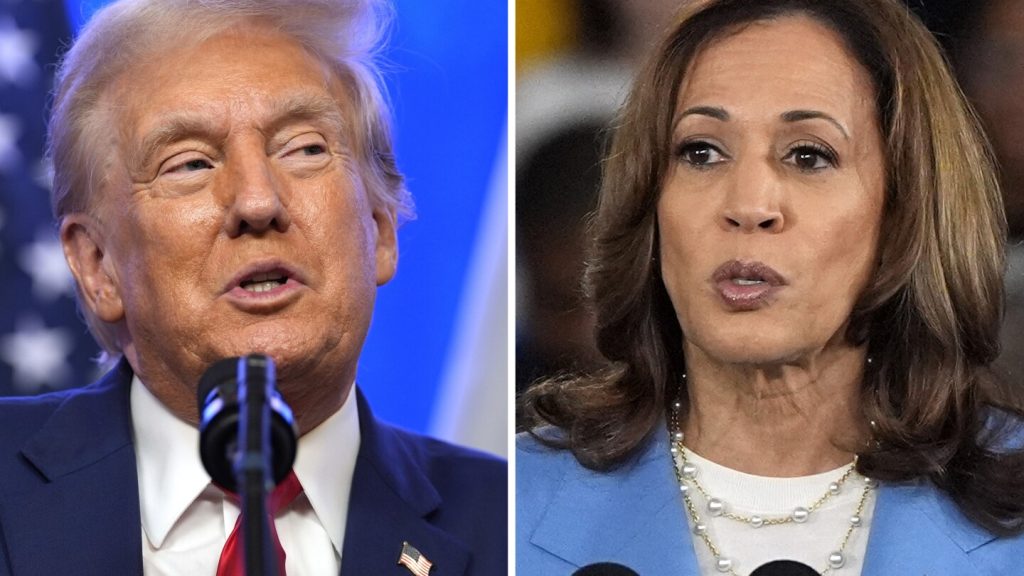Vice President Kamala Harris has accepted the rules set forth for the upcoming debate with former President Donald Trump, despite concerns that muting the microphones during the debate may disadvantage her. The decision not to keep both candidates’ microphones live throughout the matchup seemed to mark a conclusion to the debate over microphone muting, which had initially threatened to derail the debate at the National Constitution Center in Philadelphia. President Joe Biden’s campaign had made the muting of microphones a condition for accepting any debates this year, a decision that some aides now regret as they believe voters were shielded from hearing Trump’s outbursts during the June debate.
Harris’ campaign had initially advocated for live microphones for the entire debate, arguing that it would allow for substantive exchanges between the candidates. However, in a letter obtained by The Associated Press, Harris’ advisers expressed concerns that the format of muting the microphones would shield Trump from direct exchanges with the Vice President. Despite these concerns, Harris’s campaign decided to accept the full set of rules proposed by ABC, including muted microphones, to avoid risking Trump skipping the debate altogether. A pool of journalists will be present to listen to what the muted candidate may be trying to say when their microphone is turned off, in case they need to interject.
The debate rules, released by ABC, outline the basic format of the debate, including the moderators being the only ones asking questions and seeking to enforce timing agreements to ensure a civilized discussion. If a candidate repeatedly interrupts, they will receive a warning from a moderator, and both candidates’ microphones may be unmuted in cases of significant crosstalk. After a virtual coin flip won by Trump, he chose to give the final closing statement, while Harris selected the right side podium on viewers’ screens. There will be no audience, written notes, or any topics or questions shared with campaigns or candidates in advance, as stated by the network.
In a town hall event with host Sean Hannity, Trump discussed various topics typical of his campaign events, with a focus on immigration and criticism of Harris. He referred to Democrats’ substitution of Biden with Harris as “a coup” and expressed a preference for a debate with Harris rather than the town hall. Trump also reiterated his criticism of ABC as a dishonest and unfair network and alleged that Harris’ campaign will receive the questions in advance. The debate location in Philadelphia and the town hall in Pennsylvania highlight the state’s importance as a battleground with 19 Electoral College votes at stake in the upcoming election. The exchange between Trump and Harris reflects the intensity of the campaign as the election draws closer.















